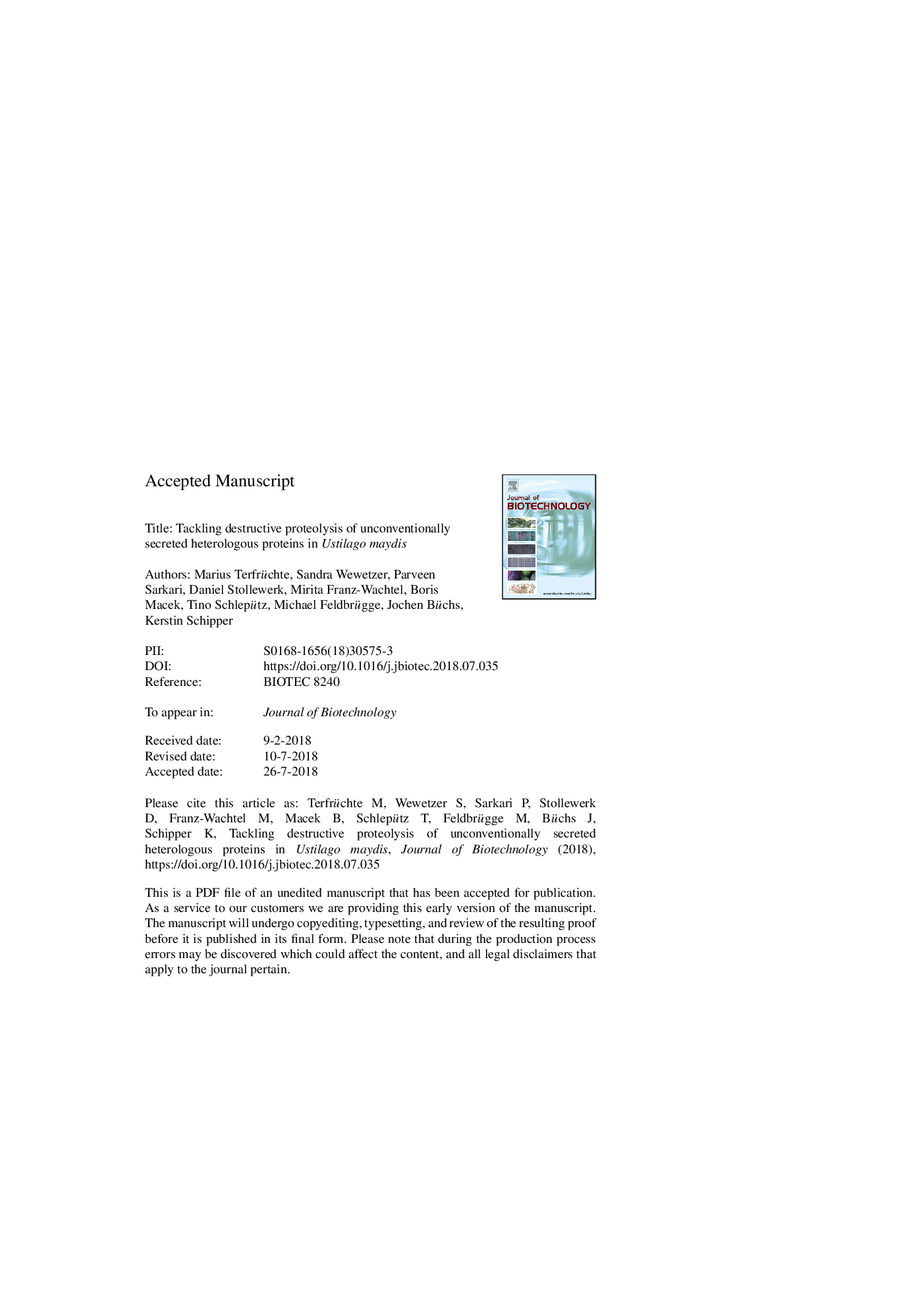| Article ID | Journal | Published Year | Pages | File Type |
|---|---|---|---|---|
| 6490108 | Journal of Biotechnology | 2018 | 56 Pages |
Abstract
The eukaryotic microorganism Ustilago maydis is currently being developed as an alternative protein expression platform. Protein fusion with an unconventionally secreted chitinase mediates export of heterologous proteins. The unique feature of this pathway is the circumvention of N-glycosylation. Different heterologous proteins could already be secreted via this novel mechanism in their active state. However, the system still suffers from low yields mainly attributed to the degradation of exported recombinant proteins by proteases. Here, we combined optimization steps on the level of cultivation conditions and strain engineering to further improve the system. Using the Respiration Activity Monitoring System we discovered that a pH drop during prolonged incubation results in loss of activity and degradation of the target protein. This problem can be reduced by buffering the cultivation medium. However, we still observed significant proteolysis even in buffered cultures. Hence, we revisited strain engineering to reduce the proteolytic activity. Secreted proteases were discovered using mass spectrometry. Then, genes for three identified proteases of a serine-carboxypeptidase family were deleted in an existing quintuple protease deletion mutant. This further diminished proteolytic activity and target protein degradation. The two approaches overall strongly improved the stability of heterologous proteins in this fungal system.
Keywords
Related Topics
Physical Sciences and Engineering
Chemical Engineering
Bioengineering
Authors
Marius Terfrüchte, Sandra Wewetzer, Parveen Sarkari, Daniel Stollewerk, Mirita Franz-Wachtel, Boris Macek, Tino Schlepütz, Michael Feldbrügge, Jochen Büchs, Kerstin Schipper,
